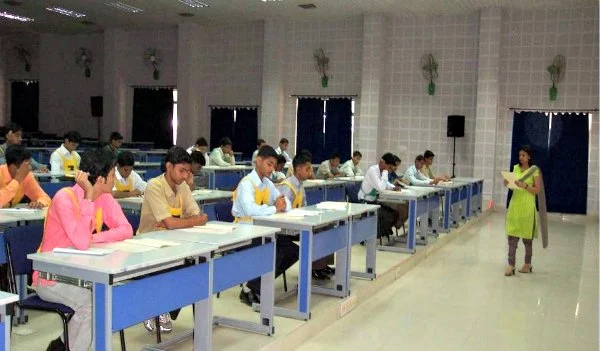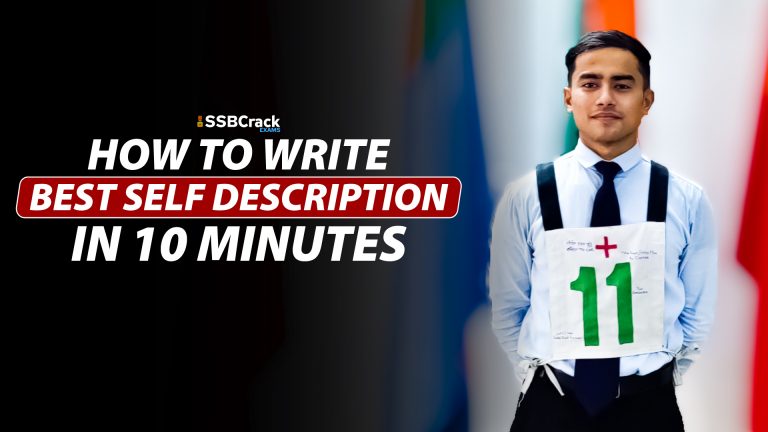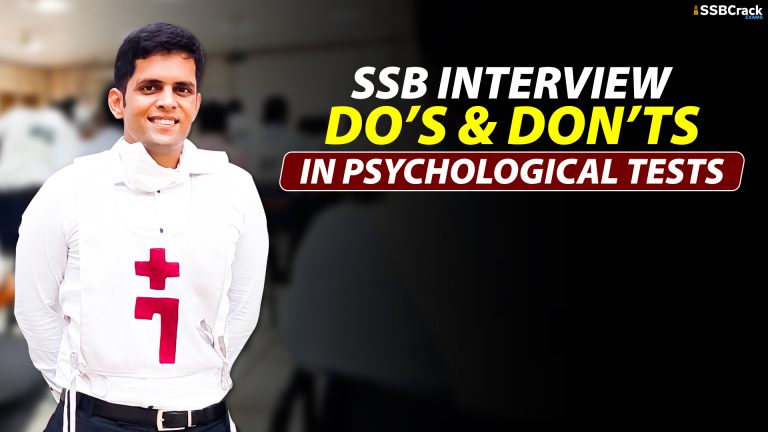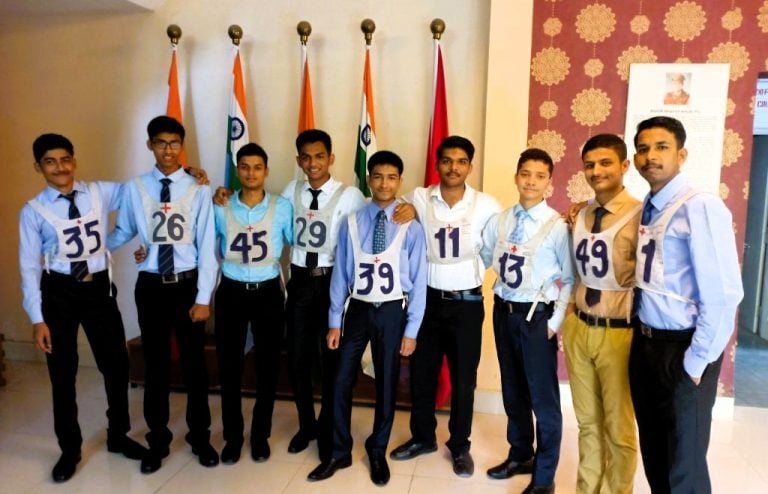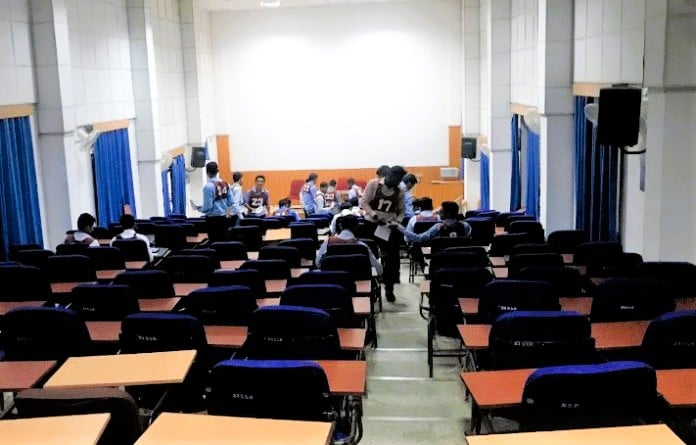The Self Description Test (SDT) is the final psychological assessment in the Service Selection Board (SSB) interview process, but it carries significant weight in determining a candidate’s suitability for the armed forces. This article provides an in-depth look at SDT, its purpose, and strategies to perform well in this crucial evaluation.
What is the Self Description Test?
The Self Description Test is the culminating assessment in the SSB’s psychological test series, following the Thematic Apperception Test (TAT), Word Association Test (WAT), and Situation Reaction Test (SRT). Despite being the last test, it is equally important as it helps psychologists validate their findings from previous assessments.
The primary purpose of SDT is to evaluate how well candidates understand themselves. It reveals whether candidates have genuine self-awareness regarding their qualities and shortcomings. This self-knowledge is considered essential for effective leadership in the armed forces.
Structure and Format
In this test, candidates have 15 minutes to write five distinct paragraphs addressing:
- What their parents think of them
- What their teachers/employers think of them
- What their classmates/friends think of them
- Their own opinion about themselves
- Qualities they would like to develop for the future
This structure allows psychologists to compare how candidates perceive themselves versus how others perceive them, providing insights into their self-awareness and interpersonal relationships.
Significance in the Selection Process
The Self Description Test serves several important functions:
- Validation Tool: It helps psychologists confirm impressions formed through earlier tests
- Self-Awareness Indicator: Reveals how deeply candidates understand their own personality
- Interview Foundation: Often forms the basis for questions during the personal interview
- Consistency Check: Allows assessors to identify inconsistencies between different facets of a candidate’s personality
How to Excel in the Self Description Test
Preparation Strategies
- Gather Authentic Feedback: Have meaningful conversations with parents, teachers, friends, and colleagues about their genuine perceptions of your strengths and weaknesses
- Maintain Consistency: Ensure your self-description aligns with information you’ve provided in other parts of the selection process
- Prepare Thoughtfully: Reflect deeply on your personality traits before the test, but avoid memorizing scripted responses
- Focus on Relevant Traits: Emphasize personality characteristics that align with military officer qualities
Writing Approach
- Be Authentic: Present an honest self-assessment rather than an idealized version of yourself
- Choose Appropriate Weaknesses: When mentioning areas for improvement, select constructive examples like “working on public speaking skills” or “developing better time management” rather than serious red flags like “controlling my temper” or “overcoming addiction issues”
- Use Clear Language: Express yourself with appropriate grammar and concise sentences
- Highlight Growth Mindset: Demonstrate self-awareness about areas needing improvement and willingness to develop
Common Mistakes to Avoid
- Copying Standard Responses: Avoid using generic descriptions from books or websites, as they lack authenticity and may contradict your actual personality during interviews
- Contradicting Yourself: Ensure consistency between different sections of your self-description
- Including Irrelevant Information: Focus on personality traits rather than lengthy biographical details
- Mentioning Critical Negative Traits: Avoid mentioning serious character flaws that would disqualify you as an officer candidate
Sample Responses
Parents’ Opinion
“My parents consider me a responsible individual who makes thoughtful decisions. They appreciate my ability to take initiative in family matters but feel I could improve my patience in challenging situations. They value my respectful nature and willingness to listen to their guidance while developing my independence. They believe I have natural leadership abilities that need further refinement through discipline and experience.”
Friends’ Opinion
“My friends describe me as dependable and supportive. They appreciate that I express my viewpoints honestly while respecting differing opinions. They often seek my advice for important decisions, noting my practical approach to problem-solving. My friends value my ability to maintain a positive atmosphere within our group and my willingness to step forward when leadership is needed.”
Teachers’/Employers’ Opinion
“My teachers recognize me as an engaged student with strong analytical abilities. They note my active participation in both curricular and extracurricular activities. While acknowledging my communication skills and teamwork capabilities, they believe I could enhance my academic performance through more consistent study habits. They appreciate my willingness to take on additional responsibilities and my respectful interaction with authority figures.”
Self-Opinion
“I see myself as a dedicated and principled individual with a strong desire to serve my country. While I possess good communication skills and adapt well to new environments, I recognize that I sometimes hesitate before making important decisions. I believe in maintaining high standards of integrity and discipline in all aspects of life. My analytical abilities help me understand complex situations, though I continue working on implementing solutions more efficiently.”
Future Development
“Moving forward, I aim to enhance my physical endurance and mental resilience to meet the demands of military service. I intend to strengthen my decision-making abilities under pressure through deliberate practice and exposure to challenging situations. Improving my knowledge of current affairs and military strategies is another priority. Additionally, I want to develop stronger leadership skills by taking on more responsibilities that push me outside my comfort zone.”
Conclusion
The Self Description Test is a vital component of the SSB selection process that provides psychologists with critical insights into a candidate’s self-awareness and personality. Success in this test depends on authentic self-reflection, thoughtful preparation, and honest communication. By understanding its purpose and approaching it with sincerity, candidates can present a genuine picture of themselves that enhances their chances of selection.
Remember that the key to performing well is not to present a perfect image but to demonstrate self-awareness, growth mindset, and the core qualities that make an effective military officer.
Also Read: What is Word Association Test (WAT) in SSB Interview?
